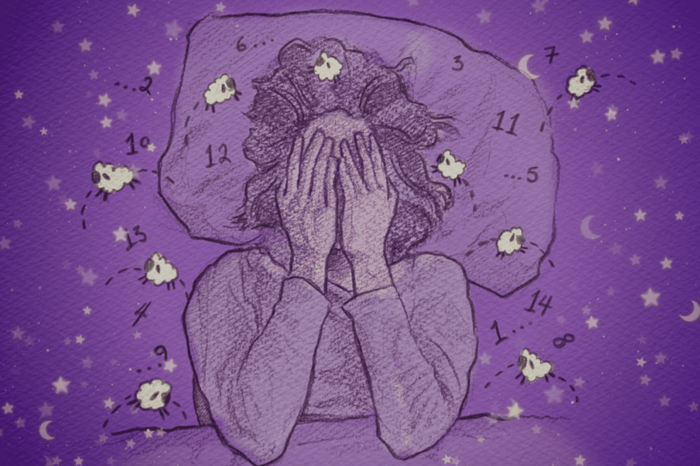Mental health support at Cambridge: a college lottery
Cambridge has made strides in improving its mental health services, yet many students find vast discrepancies between colleges and a counselling service that fails to support them long-term

I didn’t think anything of it when a friend told me last year he’d started therapy, until he said it was through his college. “Your college has a therapist?” I asked. He looked confused. “Yeah, doesn’t yours?”
In theory, the system is equal: all students can access both the UCS and support from their college wellbeing team. But, as with other college provisions, the support provided varies depending on how much funding is allocated.
A 2022 review of Cambridge’s mental health services found “wide variations” in support across colleges. Since the report, the University has made progress in attempts to centralise mental health support, with the UCS now offering appointments to students, and the average waiting time reducing to three working days. Each college now also has a wellbeing adviser and a student nurse.
“A 2022 review of Cambridge’s mental health services found “wide variations” in support across colleges.”
Ella spoke to her college wellbeing team during Lent term last year. As a fresher, reaching out to her tutor about her mental health was nerve-wracking. She was referred to her college nurse and, whilst “everyone was really kind,” Ella couldn’t help but feel “like I was bothering them.” After their appointment, the college nurse told Ella that she would email her a UCS referral link. “It felt like I’d gone through all the right steps and ended up back at square one,” she said.
Ella told me getting assigned a counsellor was “surprisingly quick.” She had four sessions with the UCS, which is the standard amount offered. Ella called the experience a net positive, saying, “even just being able to speak about things out loud made a difference.” However, she felt “stuck in limbo” as short term support ran out, and her low mood returned.
Other students have benefited from long term support thanks to their colleges. Maya, now in her third year, credits her progress to ongoing guidance from her college. Often students fear reaching out for help could hinder their academic progression. Maya praised her college for not taking this approach, saying “they didn’t see me as a liability […] some of my friends have the constant worry of fitness to study meetings. I don’t think I’d still be at Cambridge if I hadn’t had space to be honest without that fear.” Alongside counselling, she’s found that regular wellbeing events her college arranges have helped her stay grounded.
Student-led initiatives provide an alternative path for those who wish to access options beyond their college welfare. Student Minds is a student-run charity based in Universities across the UK, aiming to connect peers with resources and host regular welfare events. “We offer JCR-style welfare sessions,” explained Valeriya Damola, president of the society, “and try to bridge the gap between students and resources.”
Valeriya and vice president Poppy Jo Lee informed me about recent events, including mug painting, yoga, and speaker nights. “It’s about bringing people together and destressing from Cambridge life,” Valeriya said, continuing, “sometimes you just don’t want to attend a college welfare event for whatever reason.” Poppy added, “Sometimes it’s nice to get outside your college bubble.”
“some of my friends have the constant worry of fitness to study meetings. I don’t think I’d still be at Cambridge if I hadn’t had space to be honest without that fear.”
They stressed the importance of not only the availability of support but also its visibility. Students can reach out to them via social media or email to access resource links. Valeriya told me they take an “intersectional approach,” recognising that experiences of “mental health are not universal.”
We spoke about how the UCS fits into the network of support provided at Cambridge. Valeriya said, “I think a lot of people don’t even know how to access UCS counselling […] it’s not always obvious.” This is despite the University’s ‘Reach Out’ campaign, which aims to make students aware of support available to them. Disparities in mental health support across colleges, Valeriya added, are often amplified as colleges are people’s “first point of contact”.
Both Poppy and Valeriya highlighted how short-term much of the available support feels. Poppy noted feeling as though the UCS appears “as a one-off”. Valeriya said, “you can play with a puppy for 15 minutes or have some tea […] [but] accessing long-term help in a high pressure academic environment is important,” which in Cambridge is “very hard to do”. Her closing words resonated heavily: “What I’d like to hear after I graduate is that people feel they can access support that genuinely helps them, as opposed to distractions.”

While You Were Sleeping: lessons on coping with insomnia
Too often the support available acts as a stopgap, with students paying the emotional price. Whilst progress has been made, student mental health shouldn’t depend on luck, but with 31 disjointed systems, it often does.
 Comment / Cambridge students are too opinionated 21 April 2025
Comment / Cambridge students are too opinionated 21 April 2025 News / Candidates clash over Chancellorship25 April 2025
News / Candidates clash over Chancellorship25 April 2025 News / Cambridge professor paid over $1 million for FBI intel since 199125 April 2025
News / Cambridge professor paid over $1 million for FBI intel since 199125 April 2025 News / Zero students expelled for sexual misconduct in 2024 25 April 2025
News / Zero students expelled for sexual misconduct in 2024 25 April 2025 Comment / Does the AI revolution render coursework obsolete?23 April 2025
Comment / Does the AI revolution render coursework obsolete?23 April 2025





